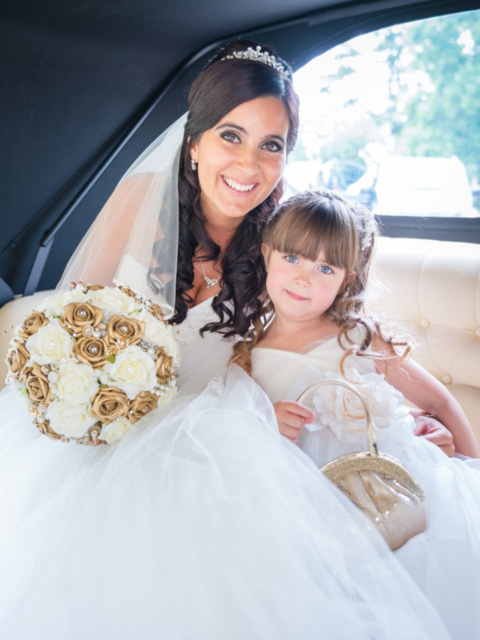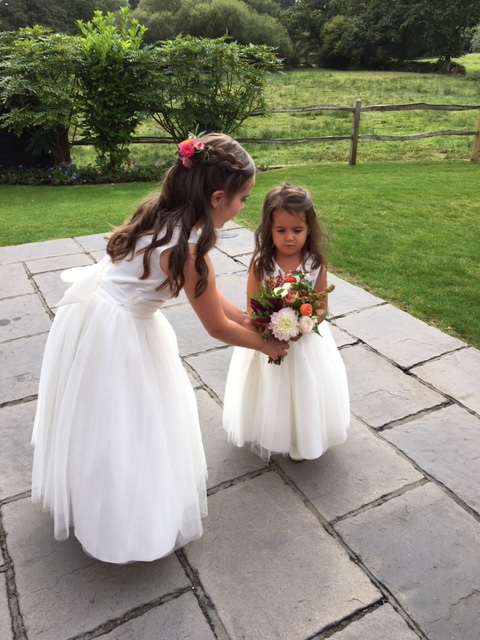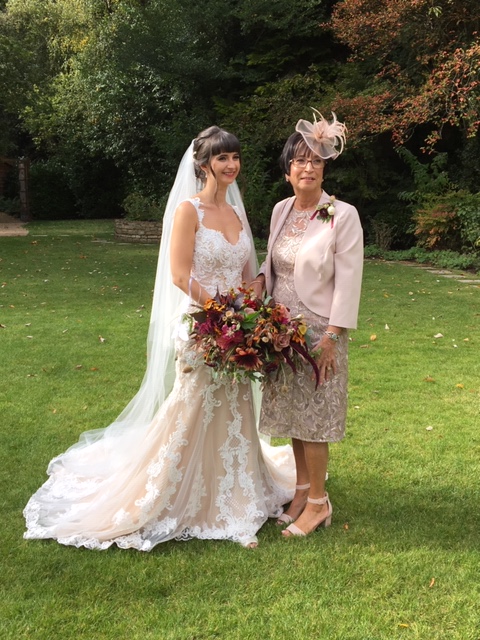Weddings
Weddings, Civil Ceremonies, Same-Sex Marriages - your personal wedding ceremony
If you use a Wedding Celebrant to conduct your ceremony it gives you the freedom to have a ceremony which is totally personalised to your own life story, journey and togetherness, and to look to the wonderful future ahead of you.
There are restrictions placed on ceremonies taking place in a church, register office and licensed venues that use a Registrar, but if you use an independent celebrant you can do things your way.
You can write your own vows to each other, and exchange rings, encourage family participation. Choose memorable music and poems. It is your special day - create your memories with your family and friends, in a romantic location personal to you. We will ensure that your bespoke ceremony will be one to remember.
You may be non-religious, or perhaps were religious in the past, so we could incorporate a spiritual approach if you wish to have one.
Wedding Traditions, Rituals and Symbolism
You may have your own ideas of incorporating rituals and symbolism into your ceremony, but if required, (we can discuss in more detail), you could include the following if you feel you would like something different:
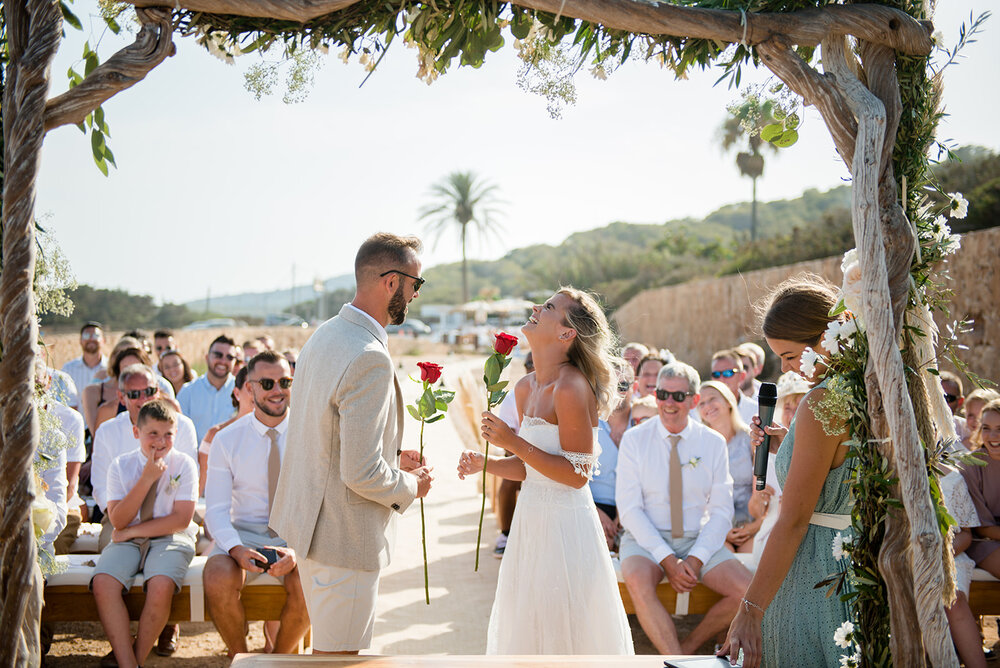


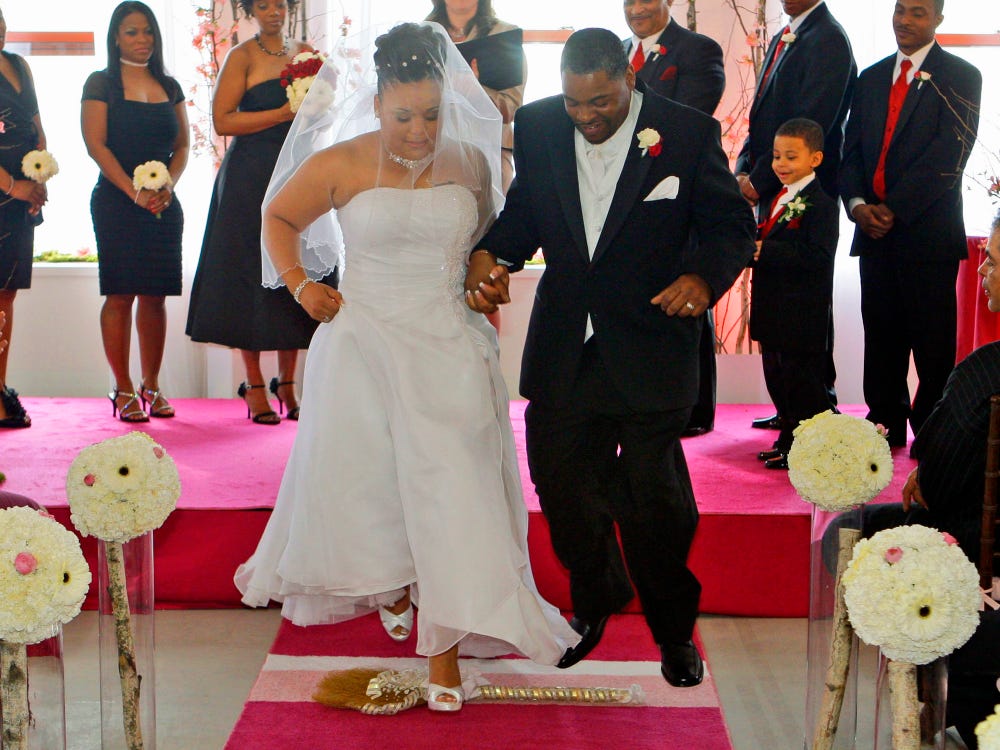

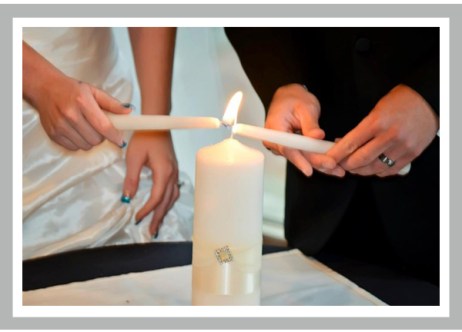
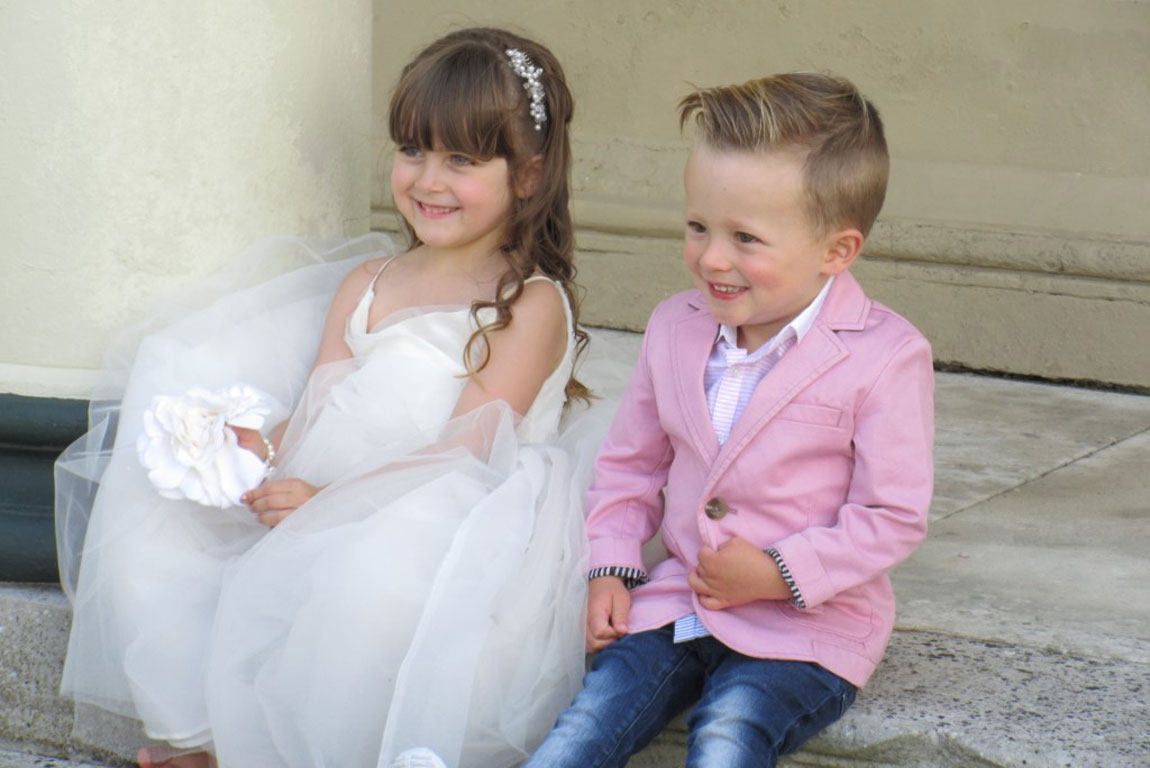

SILVER PACKAGE FEES: WEDDING CEREMONY WITH VOWS £600.00
Silver package wedding ceremonies and civil partnerships include:
- Initial consultation to discuss your special day. Either face to face, Zoom, or WhatsApp.
- If you would like me to be your chosen Celebrant, we will book in a Wedding Workshop.
- Hold a Wedding Workshop to discuss your personalized wedding and wedding day. This will be a working document.
- A ceremony questionnaire for the bride and groom – this will formulate your “Love Story”.
- Questionnaire for selected family & friends, to add to your “Love Story”.
- A professional bespoke ceremony design, choreography, and script writing – “your love story”.
- Advice and access to poems, readings, and music.
- Regular reviews, revisions, and contact throughout the process.
- Conducting the Wedding Ceremony by your Celebrant, at your chosen location.
- Personalised wedding certificate.
- Presentation of the wedding ceremony script to keep.
- I can help you in writing your own personal vows.
- Rehearsal should you choose to have one (additional cost £50.00).
- Fifty percent deposit is required when booking. This is non-refundable.
- Final payment four weeks prior to the wedding.
GOLD PACKAGE FEES: WEDDING CEREMONY WITH VOWS, & RITUAL £650.00
Gold package wedding ceremonies and civil partnerships include:
- Initial consultation to discuss your special day, either face to face, via Zoom, or WhatsApp.
- If you would like me to be your chosen Celebrant, we will book a Wedding Workshop.
- Hold a Wedding Workshop to discuss your personalised wedding and wedding day. This will be a working document.
- A ceremony questionnaire for the bride and groom – this will formulate your “Love Story”.
- Questionnaire for selected family & friends to add to your “Love Story”.
- A professional bespoke ceremony design, choreography, and script writing – “your love story”.
- I can assist you in writing your own personal vows.
- To include a Symbolic Ritual(s).
- Advice and access to poems, readings, and music.
- Regular reviews, revisions, and contact throughout the process.
- Conducting the Wedding Ceremony by your Celebrant at your chosen location.
- Personalised wedding certificate.
- Presentation of the wedding ceremony script to keep.
- Rehearsal, should you choose to have one (additional cost £50.00).
- Fifty percent deposit is required when booking. This is non-refundable.
- Final payment four weeks prior to the wedding.
Additional costs may be added that are not covered in the standard fee. For example, a ceremony booklet for your guests, ritual props (e.g., candles, ribbons, sand ceremony glasses); travel expenses and accommodation if the ceremony takes place off the Isle of Wight. Ceremonies abroad can be conducted, and costs for this can be discussed on an individual basis.
Wedding ceremony FAQs
Why choose a celebrant and not a local authority registrar?
- Your perfect venue may not have a civil marriage license, so council registrars would not be able to perform a ceremony there.
- Many couples are now choosing alternative, unusual places to exchange vows – their own gardens, woodlands, outdoor spaces – so their only option is personal ceremony with a celebrant!
Is the ceremony the same?
- A celebrant will write a bespoke ceremony script just for you – no two ceremonies will be the same.
- A personal wedding ceremony includes many different elements – your love story is told, you can choose symbolism.
- You’ll have the opportunity to write your own wedding vows to each other – I can help if required.
- Your celebrant gets to know you as they plan your ceremony, and you’ll feel comfortable and prepared on the day itself.
- A rehearsal close to the wedding day is included in our service – well, how else would we practise it.
- Every celebrant tailors their ceremonies to each individual couple, producing a very meaningful script. Some are intimate and brief, others longer and more complex but all will be personal.
- One of the main differences is that you can hold your wedding ceremony wherever you like and at whatever time you like.
Is the wedding legal?
- A celebrant-led wedding ceremony is not legal and binding – another way to describe it is your wedding blessing. But your guests will not know any different - unless you tell them!
- UK-based couples make their declaratory and contracting words at a register office before the big day with two witnesses and receive a marriage certificate.
- The ceremony that I create for you will be forever remembered as your wedding day, and personal wedding ceremonies often touch your family and friends very deeply.

